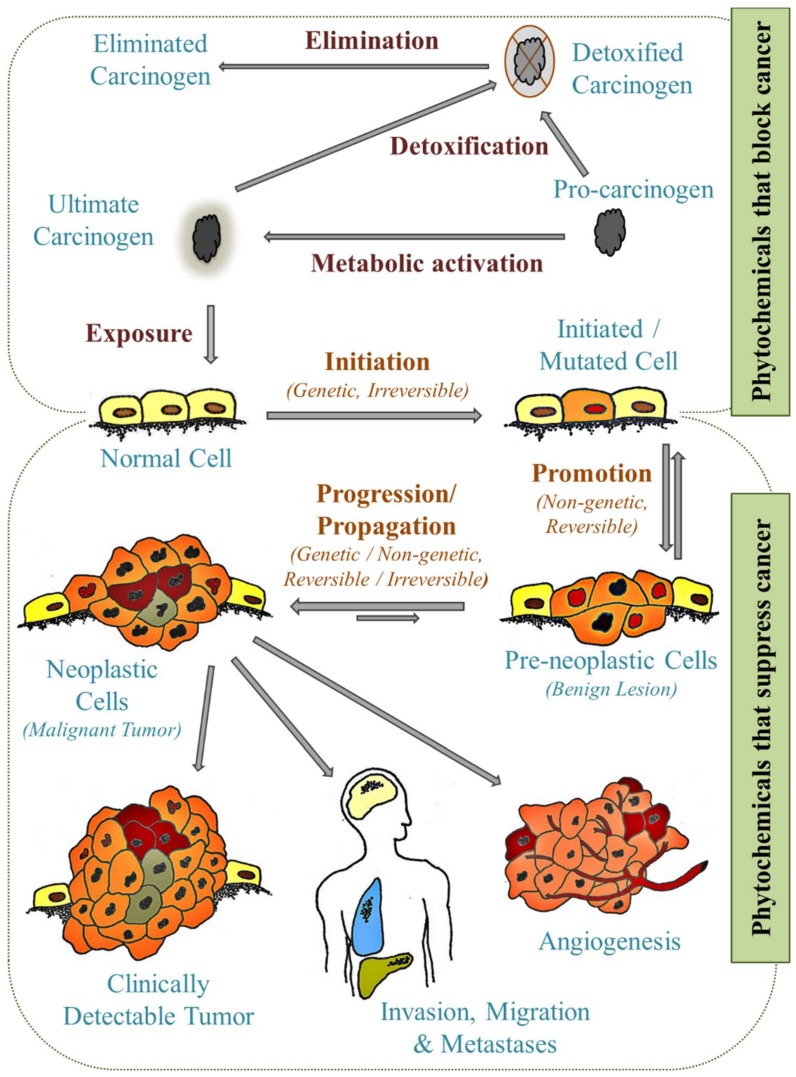Figure 1.
Polyphenolic phytochemicals (e.g., lignans) block and suppress carcinogenesis. Carcinogenesis is a multistage process of initiation, promotion, and progression. Carcinogens may initiate carcinogenesis by causing the conversion of a normal cell into an “initiated cell”, a process that is irreversible and involves genetic mutations. Initiated cells further transform into pre-neoplastic cells during the stage of promotion, and subsequently progress into neoplastic cells. Polyphenolic phytochemicals are capable of interfering with cellular and molecular processors in various stages of carcinogenesis. Phytochemicals may block cancer initiation through inhibition of procarcinogen activation into electrophilic species and their subsequent interaction with DNA. Alternatively, phytochemicals can stimulate carcinogen detoxification and their subsequent elimination from the body. Phytochemicals may suppress cancer by interfering with cancer promotion (a reversible process that involves nongenetic changes) or by regulating cancer progression, a complex process that involves both genetic and nongenetic changes as well as cell survival. Some polyphenols can act as blocking agents; others act as both blocking and suppressing agents, and some function as suppressing agents to modulate autophagy, cell cycle, and differentiation, thus affecting cancer cell proliferation. Adapted from references [3,4,67].

